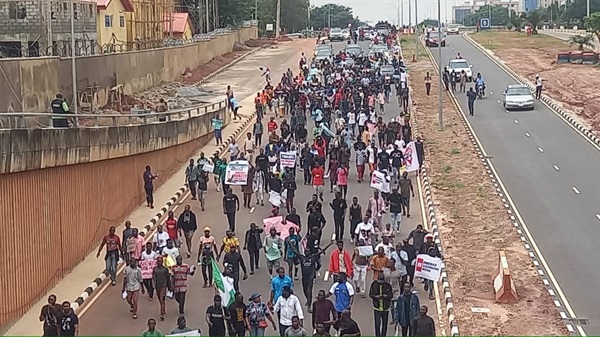INTRODUCTION.
Protests are a fundamental aspect of democratic societies, serving as a powerful mechanism for citizens to express dissent, demand change, and hold authorities accountable. While protests can lead to significant social and political transformations, they also come with challenges and potential downsides.
This article explores both the positive and negative aspects of protests in democratic environments, along with the issues that arise from these collective actions.
The Good Side of Protests.
Protests are a vital expression of the freedoms guaranteed in democratic societies. They allow individuals to voice their opinions, grievances, and aspirations, fostering a culture of open dialogue and debate, Many significant social and political changes have been initiated through protests. Historical movements such as the Civil Rights Movement in the United States, the anti-apartheid struggle in South Africa, and more recent movements like the Arab Spring and Black Lives Matter have demonstrated the power of collective action in challenging oppressive systems and advocating for justice and equality.
Furrhermore;
Protests raise public awareness about various issues, from environmental concerns to social injustices. They educate the broader public and can shift public opinion, making it more difficult for governments to ignore pressing issues.
By participating in protests, citizens engage directly in the democratic process. This participation strengthens civil society and promotes a sense of empowerment among the populace, encouraging more active involvement in civic life.
The Bad Side of Protests.
While many protests are peaceful, some can turn violent, leading to property damage, injuries, and even loss of life. It happens, in Kano, Kaduna, recently with some other states. Violent protests can undermine the legitimacy of the cause, leading to public backlash and stricter government measures.
Likewise;
Protests can disrupt economic activities, particularly when they involve strikes or blockades. This disruption can have significant economic consequences, affecting businesses, workers, and the overall economy.
And
Protests can sometimes deepen societal divisions, especially if they involve contentious issues. This polarization can lead to an “us versus them” mentality, reducing the possibility of constructive dialogue and compromise.
And again;There
is always the risk that protests can be manipulated or co-opted by political groups or individuals with their own agendas. This can divert the movement from its original goals and dilute its impact.
Matters Arising.
1. Democratic societies face the challenge of balancing the right to protest with the need to maintain public order. Governments must navigate the fine line between protecting citizens’ rights and ensuring that protests do not escalate into chaos.
2. The media plays a crucial role in shaping public perception of protests. Biased or sensationalist coverage can influence public opinion and either support or delegitimize protest movements. Ensuring accurate and fair reporting is essential.
3. The way governments respond to protests can have significant implications. Repressive measures can escalate tensions, while constructive engagement can lead to meaningful dialogue and potential solutions. Finding the appropriate response is key to maintaining democratic integrity.
4. Sustaining momentum after the initial protest is a critical issue. Many movements struggle to maintain engagement and achieve long-term goals. Effective organization, clear objectives, and the ability to adapt are crucial for lasting impact.
5. Democratic societies need robust legal and institutional frameworks to manage protests. This includes clear laws that protect the right to protest while ensuring public safety, as well as institutions capable of mediating conflicts and addressing grievances.
In Conclusion;
Protests are an integral part of democratic life, offering a means for citizens to express their views, demand accountability, and drive change. While they come with challenges and potential downsides, the overall impact of protests on democracy can be profoundly positive. Addressing the issues that arise from protests requires thoughtful consideration, balanced policies, and a commitment to upholding democratic principles. By doing so, societies can harness the power of protests to build more just, equitable, and responsive democracies.







